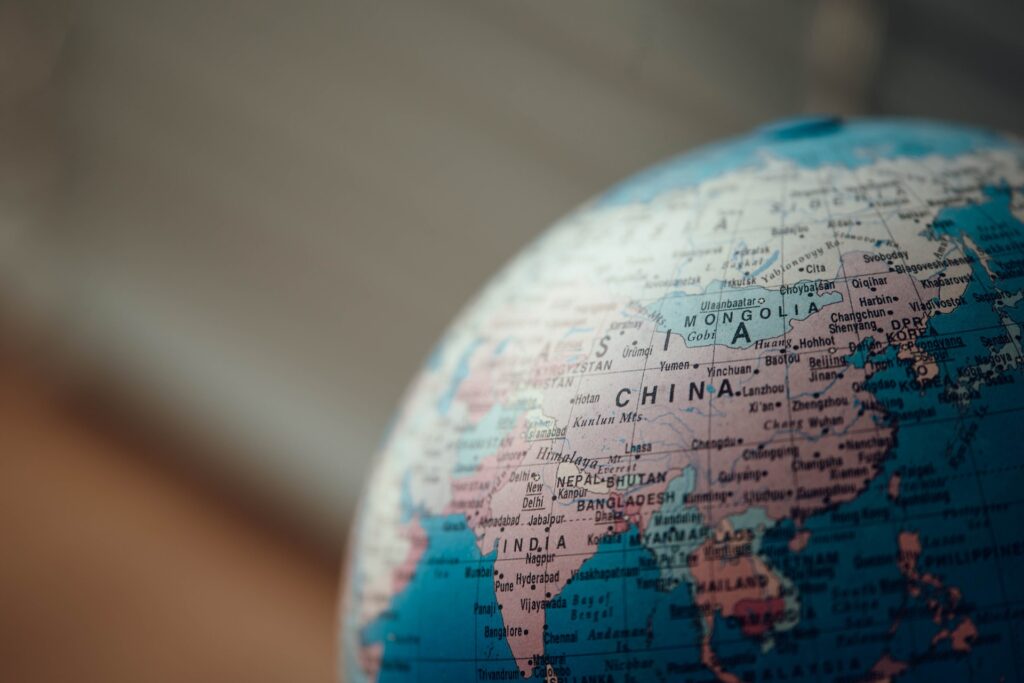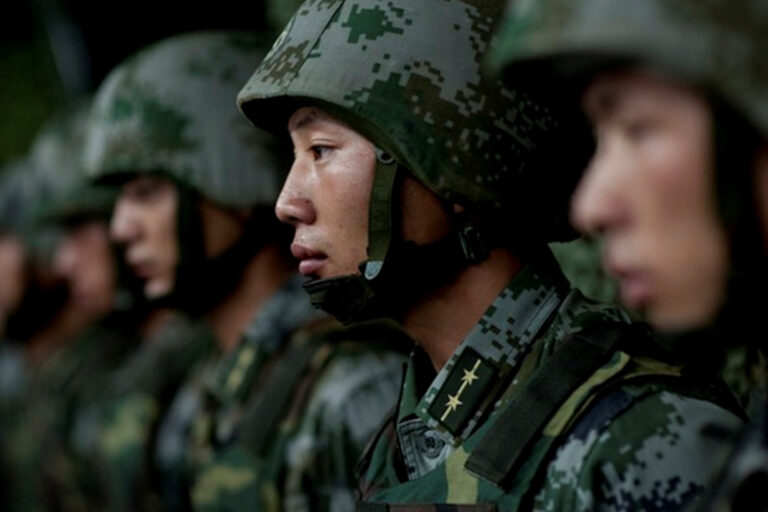Key Judgments
- Growing ties between Moscow and Beijing threaten US national security. American strategic planners should consider undermining these ties as a strategic imperative. This goal remains achievable if pursued with vigor because Russia’s “special military operation” in Ukraine has exposed differences in worldviews between Moscow and Beijing.
- While these differences are not necessarily chasmic, Washington should try to exploit them. However, unilateral diplomacy with Beijing to draw Moscow out of its orbit is bearing limited-to-no results.
- Acknowledging Beijing’s diplomatic intractability, the United States should recalibrate its foreign policy and use other tools in its toolkit to prod China away from Russia. I thus draw on historical lessons from great-power competition to craft two urgent US foreign policy recommendations.
Introduction: Separation of Powers
By 1959, relations between the USSR and China soured despite strong bonds forged over the previous decade. Recriminations flared back and forth over whether the Chinese or Soviets were best positioned to lead the global communist movement. Insults between China’s Chairman Mao Zedong and the USSR’s Nikita Khrushchev grew personal. In 1962, for example, after Khrushchev refused to escalate the Cuban Missile Crisis to nuclear war with the United States, Mao questioned Khrushchev’s revolutionary bona fides, accusing him of sliding “from adventurism to capitulationism.”[1]
The fallout between the two systems culminated in the Sino-Soviet Split. They severed interstate relations. Cross-border military incursions mounted. On March 2, 1969, rhetoric turned to violence when Chinese troops ambushed Soviet Army positions astride the disputed Ussuri River near Manchuria, killing thirty-one.[2] Enraged, the Soviet Defense Minister vowed to drop a megaton bomb to “once and for all get rid of the Chinese threat.”[3] The Kremlin forward-deployed nuclear-capable mobile theatre ballistic missile launchers to the border region soon afterward.[4] More ground and air forces occupied the border region than were stationed in Eastern Europe at the time.[5]
The border war lasted for several months. It degraded Moscow’s international standing, which contributed to the USSR’s collapse two decades later. It also shattered the myth—one many Westerners believed—that the worldwide communist movement was monolithic and unbreakable. Most significantly, the unspooling of Sino-Soviet relations shifted the triangular balance of power from the east to the west.[6] The standoff ended only when both parties agreed to a ceasefire that September before they could escalate the conflict to nuclear war, but not before the Nixon administration exploited the crisis by prying China away from the Soviet orbit, albeit ploddingly. Although the Nixon administration probably lacked a coherent strategy to engage China at the time, it pressed for greater ties by ordering US warships out of the Taiwan Strait, easing travel and trade restrictions against China that dated from the early days of the Korean War, and relaunching Sino-US Ambassadorial Talks over the repatriation of nationals and other bilateral issues.[7],[8] The policy redirection set the stage for President Nixon’s visit to China in 1972. During the visit, Chairman Mao offered Nixon “faint praise” and negotiated with Nixon on mutually favorable terms.[9]
The Limits of Nixon-Style Diplomacy Today
Since then, the balance of power has shifted back east. Hal Brands, Henry A. Kissinger Distinguished Professor of Global Affairs at the Johns Hopkins University School of Advanced International Studies, warns that the budding relationship between Russia and China is now America’s “greatest strategic problem.”[10] While Russian and Chinese political elites no longer share real, communist bonhomie like the Soviets and Chinese of the pre-Split early 1950s, they are nonetheless united in an ideological commitment to sustaining autocratic rule. They share a disdain for the West and, in particular, the United States. Their heads of state have met numerous times since Xi Jinping rose to power in 2012. They have solidified trade, financial, and, to a limited extent, security partnerships, with China referring publicly to Russia as a “strategic partner” in recent rhetoric.[11] Their combined military might in Eurasia threatens US national security, considering their advanced nuclear, hypersonic, cyber, and conventional combat capabilities.
At first glance, shifting the triangular balance back to the west and in America’s favor seems like a fool’s errand. The Chinese and Russians are exchanging neither insults—as they did in the lead-up to the 1969 border war—nor artillery rounds. Instead, they broadcast an image of a united front. Most importantly, the prospect of another Nixon-style rapprochement with Beijing’s power elite—one at Moscow’s expense—is remote. Chinese diplomats have increasingly adopted a confrontational, brash, and uncompromising style in bilateral negotiations. China’s political leaders believe their military and economy are on par with those of the United States; China now has more warships underway than America and is catching up in the total number of active combat aircraft.[12] Indeed, in economic, military, and diplomatic terms, the PRC under Mao exerted much less power in the international system than China does now. The emergence of China’s “wolf-warrior” diplomacy should thus be unsurprising to outside observers.
Small wonder then that Mao’s China—or even Hu Jintao’s China ten years ago—were more willing to negotiate with the United States than are Xi’s diplomats today. US diplomats should be pessimistic about what policy outcomes are reachable in face-to-face dialogue with their Chinese counterparts because the dialogue is now so unproductive. For example, in a recent summit in mid-March, Washington and Beijing were “candid” over Ukraine, but still, the talks led nowhere.[13]
Why Another Sino-Russian Split Is Still Possible
Yet one element of friction remains consistent between then and now: just as war divided the Soviets and Chinese then, it divides the Russians and Chinese now. Today’s war in Ukraine, which has raged on for months with no sign of abating, underscores subtle differences in the worldviews of the two superpowers. Russian President Vladimir Putin, a revanchist, obsesses over destroying the rules-based international order that he believes rejected his country after the Cold War. Putin’s war on Ukraine is just one manifestation of this goal. Inured to repeating Putin’s talking points, his inner circle has already admitted as much. For example, Russian Foreign Minister Sergei Lavrov disclosed to state-owned television news channel Rossiya 24 in April that Russia’s “special military operation is meant to put an end to the unabashed expansion [of the North Atlantic Treaty Organization (NATO)] and the unabashed drive towards full domination by the United States and its Western subjects on the world stage.”[14]
Beijing, for its part, prospers from the same rules-based economic order that Putin shuns. Despite China’s “strategic partner” bluster, it recoils from taking a firmer stance on the Ukraine conflict—potentially because supporting the war would militate against Xi’s broader economic goals. Unlike Putin, who is looking to destroy the house, Xi wants to renovate it from within. All of China’s global economic ambitions, such as constructing the Belt and Road Initiative, strengthening preferential trade for certain countries, and developing a global banking network, have thrived from within this order.[15] Chinese strategic thought, moreover, is centered around “building a modern socialist country that is prosperous, strong, democratic, culturally advanced, and harmonious” by 2049—the centennial of the Chinese Communist Revolution.[16] Ryan Hass, a senior fellow at the Brookings Institution, describes the Chinese Communist Party’s (CCP) differences with Russia elegantly: “China’s long-term interests are not perfectly aligned with Russia’s. Putin is an arsonist of the international system presiding over a country in terminal decline. China sees itself as a country on the rise with more to lose than gain by global volatility.”[17]
The value of China’s trade with the European Union (EU) and the United States, a combined $1.4 trillion in 2021, far exceeds the relatively paltry $147 billion trade between Russia and China.[18] These figures alone emphasize China’s high stake in sustaining the existing global order. The likelihood that China would destroy its economic progress for the sake of aiding a Russian-led slash-and-burn campaign against the West is thus rather low—at least at this stage of China’s strategic competition against America and its partners. At a time when China still lacks the military might or economic heft to fully overpower the United States, the value it derives from the global commons is a self-imposed restraint on its willingness to engage in or be a party to a major war. Yet this does not suggest war, particularly against Taiwan, is unlikely. As with many rising economic powers throughout history, hubris could plunge China into war. But unless the CCP views an invasion as politically necessary, it does suggest that the CCP would not pursue a war like Putin’s that would undermine China’s strong economic position.
Economic disparities between the two countries are set to widen in 2022 and beyond. Western sanctions are taking a significant toll on the Russian economy. Perhaps, as a result, JPMorgan Chase estimates that the Russian economy will shrink by 35 percent in the second quarter of 2022 and by 7 percent during the entire year.[19] With Russian war crimes in Ukraine growing, Western sanctions will only expand, as will secondary sanctions. Furthermore, the EU may scrap the EU-China Comprehensive Agreement on Investment—an ambitious deal that opens Chinese consumer markets to EU investors—because Beijing tacitly supports Russia.[20] Neither average Chinese consumers nor their government want to bear these secondary effects. Last month, Chinese Foreign Minister Wang Yi conceded that “China is not a party to the crisis, nor does it want the sanctions to affect China.”[21]
Indeed, Beijing’s stakes in Russia could wane as the war wears on, global outrage builds, atrocities at the hands of Putin’s frontline soldiers mount, and economic productivity in Russia nosedives. Beijing defending or even brooking Moscow’s behavior likely will become increasingly difficult. As China explores new global business partnerships, expands BRI, and promotes soft power in its sphere of influence, Beijing has little use for a war with global economic repercussions. “Xi has a delicate balancing act—he’s trying to steer clear of counter-sanctions, but if he decouples from the Sino-Russian partnership, this will be an admission that his Russia policy has failed,” according to Elizabeth Wishnick, a senior research scientist at CNA.[22] China has already cut some financial ties with Russia: state-owned Sinopec, China’s premier energy provider, suspended investment and marketing deals with Russia in April.[23]
US Policy Recommendations
The Biden administration should set forth a grand strategy that loosens the ties that bind Russia and China. Putin’s war of aggression on Ukraine affords President Biden a fleeting chance to deepen the wedge between them, as did President Nixon and his national security team in 1969. The Nixon administration’s gamesmanship that assisted in breaking Maoist China away from the USSR in 1969 was instructive.[24] But, as suggested, its lessons are ill-equipped to tackle the entirety of the challenge posed today by the Beijing-Moscow axis. Therefore, two other examples in great-power history also offer illustrative lessons essential for understanding how to manage the current debacle. With dialogue and negotiation with Beijing currently unworkable, Washington should glean these historical truths to peel Beijing away from Moscow and consider two policy recommendations.
Policy Recommendation 1: Shape the Information Environment to Disrupt Sino-Russian Ties
In July 1870, news broke that Prussian Prince Leopold of Hohenzollern-Sigmaringen was slated to accede the vacant Spanish throne, igniting violent passions in neighboring France.[25] Thereafter, the French ambassador in Berlin visited Prussian King William I. He sought assurances that Leopold would not become king. William, looking to appease his host, agreed. He drafted the “Ems Telegraph” for the French government. However, before the telegram could transmit, Prussian Chancellor Otto von Bismarck edited it to imply that the ambassador had insulted Prussian royalty and that William had reacted with “cavalier indifference” to France’s concerns before leaking the doctored telegram to the press.[26] Upheaval resulted in both France and the German states, thrusting them into great-power war. In a strategic victory for Bismarck, the war ensnared four nonaligned states in southern Germany into joining Prussia’s northern confederation. The French, already incensed by the prospect of a Prussian nobleman seizing the Spanish kingship, required only a Bismarckian nudge into conflict.
Then as now, information and misinformation are indispensable elements of strategic competition—and are possibly even more consequential nowadays to the fates of nations because of the ubiquity of social media. Unlike modern conventional warfare, which is bound by rules of engagement, conventions, and treaties, no laws have so far succeeded in governing the information-warfare space since the days of Bismarck. US rivals have taken advantage; Russia weaponized social media to meddle in US elections and inflame American political disagreements. Essentially, China has unofficially declared an information war against the United States. Last year, the Chinese Ambassador to France and Monaco Lu Shaye stated, in the information war context, that “we [China] need to have long-term planning, just like Chairman Mao talked about the protracted war.”[27]
The United States must reshape the information environment to regain strategic advantages against its two most capable and hostile competitors to respond to these challenges. Like Bismarck, prosecuting US-led information warfare should exploit the growing divisions between Moscow and Beijing discussed earlier and aggravate their mutual suspicions in ways that facilitate their separation. For example, in both subtle and obvious strategic messaging, the United States should condemn the Beijing-Moscow axis and expose its weaknesses. Official speeches, social media, and other fora and media are capable delivery vessels. Washington could also sow distrust between the two superpowers through routine, grassroots-level diplomatic engagements—even if both powers are unpersuadable in face-to-face dialogue at higher levels.
Yet because Beijing gains little from forging stronger ties with Moscow in the first place, the United States may not need outright Bismarck-style deception. In this new paradigm, Russia has been humiliated on the battlefield in Ukraine, cut off from commodity markets, and viewed as a pariah by the West, albeit not yet publicly by Beijing or much of the rest of the world. US and allied truth-telling might make these Russian weaknesses even more apparent to Beijing. Doubling down on this narrative publicly would exacerbate Russian and Chinese interstate grievances and complicate Beijing’s decision space—similar to how Washington countered Russian disinformation in the weeks leading up to Putin’s Ukraine invasion in late February.
Especially, the Biden administration should prey on China’s fast-growing fears of financial and economic catastrophe resulting from the Ukraine debacle, the soft underbelly of the China-Russia goliath. For the reasons outlined above, the Chinese economy finds itself in a precarious position; it risks isolation by tying itself to Moscow. Washington might not gain much ground trying to persuade or coerce the wolf warriors into anything, much less how to jettison their main security partner. So rather than continuing to negotiate over Ukraine at the highest levels, which would continue to go nowhere, Washington should convince Beijing that China’s relationship with Russia is detrimental to its economic future. America should make these facts more apparent to Beijing through signaling, economic brinkmanship, and trade disputes.
Alternatively, if the Biden administration finds that China’s foreign policy determined to support Moscow and unpersuadable, then it should also feed Russian paranoia about China emerging from the Ukraine crisis in a position of even greater strength. Thereafter, Washington could exploit Russia’s economic weaknesses. As former Kremlin advisor and Russian ultranationalist Sergey Karaganov noted recently, China has emerged as a key victor in the Russia-Ukraine war, exerting “overwhelming economic predominance” over Russia.[28] Given Karaganov’s ideological alignment, his sentiment is a good barometer for Putin’s worldview, but it may not be necessarily true. If sanctions on Russia become too much to bear for its economy, Washington will be able to drive a much harder bargain against Moscow—possibly at the expense of its relationship with Beijing. With thousands of Russian troops dead and billions of rubles squandered, Russia is in a much tighter spot than it was even in February. The Biden administration will be better-postured to exact concessions from the Kremlin that include decoupling from China.
Policy Recommendation 2: Fortify a Global Anti-Russia-China Front
In the 1700s, the Austrian Habsburg Empire was divided internally by various warring tribes and languages, surrounded by stronger enemies in virtually every direction, and lacking the vast wealth of rival powers.[29] Despite these challenges, effective statecraft enabled the empire to endure as it had for nearly half a millennium. The Habsburgs employed whole-of-government operations below the level of armed conflict because total war would, in most cases, have been suicidal. They divided enemies at key moments in geopolitical competition, and only fought pitched battles when thought winnable. Yet of all its stratagems, the Habsburgs’ most critical tool for state survival lied in an advanced ability to “enmesh both allies and would-be rivals into relieving the pressure” on their vulnerable geographic position.[30] The Empire lured weak states into defensive balancing alliances, appeased friends and rivals when needed, and brokered power-sharing treaties to ingratiate itself with the rest of Europe.
Like the Habsburg Empire, the United States must account for structural weaknesses as it competes in the strategic environment for positional and influential advantage. America’s domestic political divisions have deepened since the Trump Era, constraining Washington’s ability to articulate a coherent grand strategy. The United States also lacks direct-engagement military options against China and Russia, which have strategic nuclear weapons and formidable, win-at-all-costs warfighting doctrines. The Biden administration should thus heed the Habsburg lesson: when confronting powerful rivals, coalition-based grand strategies tend to work and work well. By uniting and strengthening global opposition to the Russia-China partnership, whether through military, economic, financial, or moral engagement, the United States can slow the autocrats’ global momentum and drive the two superpowers further apart. According to Georgetown University Professor Matthew Kroenig, the United States is more likely to remain the world’s only superpower over its autocratic rivals because its democracy gives it better prospects for building on a global alliance.[31] Compared to autocracies, democracies have higher correlations with “economic growth, creditworthiness, trade openness, trade openness, alliance size, alliance duration, alliance reliability, and military effectiveness.”[32]
Specifically, the Biden administration should plan and execute a multilateral goodwill campaign to strengthen solidarity with US allies and “would-be rivals” alike. For example, many rivals and would-be rivals of the United States, such as Nicaragua and Cuba, abstained from the United Nations General Assembly vote calling on Russia to immediately withdraw its troops from Ukraine.[33] The United States can still attract these and other like-minded countries into its orbit lest they fall prey to Beijing’s infrastructure diplomacy or Moscow’s disinformation web. To capitalize on the power of the moment then, the United States must empower all countries in China and Russia’s crosshairs. Many such countries exist outside of already-established formal security frameworks, such as NATO or Australia, New Zealand, and United States Security Treaty. This could afford opportunities to form and cultivate lasting relationships, especially with states at the peripheries of—and directly threatened by—Chinese and Russian aggression, such as Moldova, Vietnam, Thailand, and Georgia.
How America empowers old partners and develops relationships with new ones could take many forms. Washington could establish new peace or defense treaties with these would-be rivals to deprive Russia and China of expanding their influence. Like the nuclear-powered submarine deal with the UK and Australia, Washington should also broker advanced weapons-sharing agreements with a much higher number of Atlantic and Pacific allies, outfitting them with only the best radars, antiair, and defensive systems. It could rope Cuba and other antagonists into free-trade deals that would deprive China and Russia of valuable export destinations. However, a word of caution is in order: pushing too hard to isolate or contain China and Russia might be counterproductive. As Sun Tzu noted in The Art of War, “Do not press a desperate foe too hard.”[34] Isolating both countries simultaneously might draw them closer together. Putin’s pretext for the invasion was based on a notion, albeit an incorrect one, that NATO was cornering him. That is why it might behoove President Biden to reassure Xi that viable alternatives—such as closer relations to Central Asia—to his all-or-nothing strategic relationship with Moscow exist, which could forestall the possibility of Xi concluding that further outward aggression is his only option.
[1] R. Craig Nation, Black Earth, Red Star: A History of Soviet Security Policy, 1917–1991 (Ithaca, NY: Cornell University Press, 1992), 239.
[2] Thomas W. Robinson, “The Sino-Soviet Border Dispute: Background, Development, and the March 1969 Clashes,” American Political Science Review 66, no. 4 (December 1972): 1175–1202, https://doi.org/10.2307/1957173.
[3] Arkady N. Shevchenko, Breaking with Moscow (New York, NY: Knopf, 1985), 165.
[4] Central Intelligence Agency, “The Soviet Buildup against China: Dimensions and Implications,” memorandum, May 6, 1969, https://www.cia.gov/readingroom/docs/CIA-RDP79R00967A000800030003-8.pdf.
[5] Central Intelligence Agency, “The Soviet Buildup against China.”
[6] Antonio Denti, Michael Martina, and Andrea Shalal, “U.S. Raises Concerns about China Aligning with Russia at Meeting It Calls ‘Intense’,” Reuters, March 15, 2022, https://www.reuters.com/world/us-warn-china-perils-aiding-russia-rome-meet-2022-03-14/.
[7] United States Department of State, “Milestones: 1969–1976 – Office of the Historian,” May 31, 2022, https://history.state.gov/milestones/1969-1976/rapprochement-china.
[8] Lorenz M. Lüthi, “Restoring Chaos to History: Sino-Soviet-American Relations, 1969,” The China Quarterly, no. 210 (2012): 396.
[9] Joe Renouard, “The Nixon-Mao Summit: A Week that Changed the World?,” Association for Asian Studies 17, no. 3(Winter 2012), https://www.asianstudies.org/publications/eaa/archives/the-nixon-mao-summit-a-week-that-changed-the-world/.
[10] Hal Brands, “The Eurasian Nightmare: Chinese-Russian Convergence and the Future of American Order,” Foreign Affairs, February 25, 2022, https://www.foreignaffairs.com/articles/china/2022-02-25/eurasian-nightmare.
[11] Ken Moritsugu, “China stands by Russia despite Ukraine invasion, dubs it ‘most strategic partner,’” Global News, March 7, 2022, https://globalnews.ca/news/8663491/china-russia-ukraine-invasion-strategic-partner/.
[12] Department of Defense, “Military and Security Developments Involving the People’s Republic of China” (Washington: Office of the Secretary of Defense, 2021), https://media.defense.gov/2021/Nov/03/2002885874/-1/-1/0/2021-CMPR-FINAL.PDF.
[13] Denti, Martina, and Shalal, “U.S. Raises Concerns about China Aligning with Russia at Meeting It Calls ‘Intense’.”
[14] Natalie Musumeci, “Russian Foreign Minister Says Russia’s War with Ukraine is ‘Meant to Put an End’ to US World Domination and NATO Expansion,’” Business Insider, April 11, 2022, https://www.businessinsider.com/russian-foreign-minister-says-ukraine-war-meant-stop-us-domination-2022-4.
[15] U.S.-China Economic and Security Review Commission, “China’s Trade Ambitions: Strategy and Objectives behind China’s Pursuit of Free Trade Agreements” last updated May 28, 2015, https://www.uscc.gov/research/chinas-trade-ambitions-strategy-and-objectives-behind-chinas-pursuit-free-trade-agreements.
[16] “Global China 2049 Initiative,” ODI, last updated March 9, 2021, https://odi.org/en/about/our-work/global-china-2049-initiative/.
[17] Erin Hale, “Personal Ties that Bind: How Xi-Putin Relationship has Evolved,” Al Jazeera, March 18, 2022, https://www.aljazeera.com/news/2022/3/18/personal-ties-that-bind-how-xi-putin-relationship-has-evolved.
[18] Jonathan Haslam, “A Wary China Keeps Its Distance from Putin the Gambler,” Financial Times, April 5, 2022, https://www.ft.com/content/541c7570-8df6-4d36-b580-e3d261daa4d7.
[19] Reuters Staff, “JPMorgan: Shock to Russian GDP Will be Akin to 1998 Crisis,” Reuters, March 3, 2022, https://www.reuters.com/world/europe/jpmorgan-shock-russian-gdp-will-be-akin-1998-crisis-2022-03-03/.
[20] William Yuen Yee, “Is the EU-China Investment Agreement Dead?,” The Diplomat, March 26, 2022, https://thediplomat.com/2022/03/is-the-eu-china-investment-agreement-dead/.
[21] Natasha Turak, “How Much Can—and Will—China Help Russia as Its Economy Crumbles?” CNBC, March 16, 2022, https://www.cnbc.com/2022/03/16/how-much-can-and-will-china-help-russia-as-its-economy-crumbles.html.
[22] Hale, “Personal Ties that Bind.”
[23] Hale, “Personal Ties that Bind.”
[24] While the Nixon Administration faulted on most other foreign policies—perhaps most notably its “linkage” strategy to tie negotiations with the USSR to the U.S. war in Vietnam—I cite its triangular diplomacy as an example of a policy that succeeded in advancing U.S. interests and weakening rivals in great-power competition.
[25] C. de B. Webb, “The Origins of the Franco-Prussian War: A Re-Interpretation,” Theoria: A Journal of Social and Political Theory, no. 27 (October 1966):9–20, https://www.jstor.org/stable/24247658.
[26] Webb, “The Origins of the Franco-Prussian War.”
[27] Joseph Bosco, “China has Declared Information Warfare against America—Biden Must Respond Vigorously,” The Hill. June 22, 2021, https://thehill.com/opinion/international/559455-china-has-declared-information-warfare-against-america-biden-must/.
[28] Bruno Maçães, “‘Russia Cannot Afford to Lose, so We Need a Kind of a Victory’: Sergey Karaganov on what Putin wants,” The New Statesman, April 2, 2022, https://www.newstatesman.com/world/europe/ukraine/2022/04/russia-cannot-afford-to-lose-so-we-need-a-kind-of-a-victory-sergey-karaganov-on-what-putin-wants.
[29] A. Wess Mitchell, The Grand Strategy of the Habsburg Empire (Princeton, NJ: Princeton University Press, 2018). 5.
[30] Mitchell, The Grand Strategy of the Habsburg Empire, 13.
[31] Matthew Kroenig, The Return of Great Power Rivalry: Democracy versus Autocracy from the Ancient World to the U.S. and China (New York, NY: Oxford University Press, 2020), 54.
[32] Kroenig, The Return of Great Power Rivalry, 58.
[33] Leila Miller, “Increasingly Isolated, Putin Finds a Few Allies in Latin America,” Los Angeles Times, March 5, 2022, https://www.latimes.com/world-nation/story/2022-03-05/la-fg-ukraine-latin-america-response
[34] Sun Tzu, The Art of War (2021), 10.




